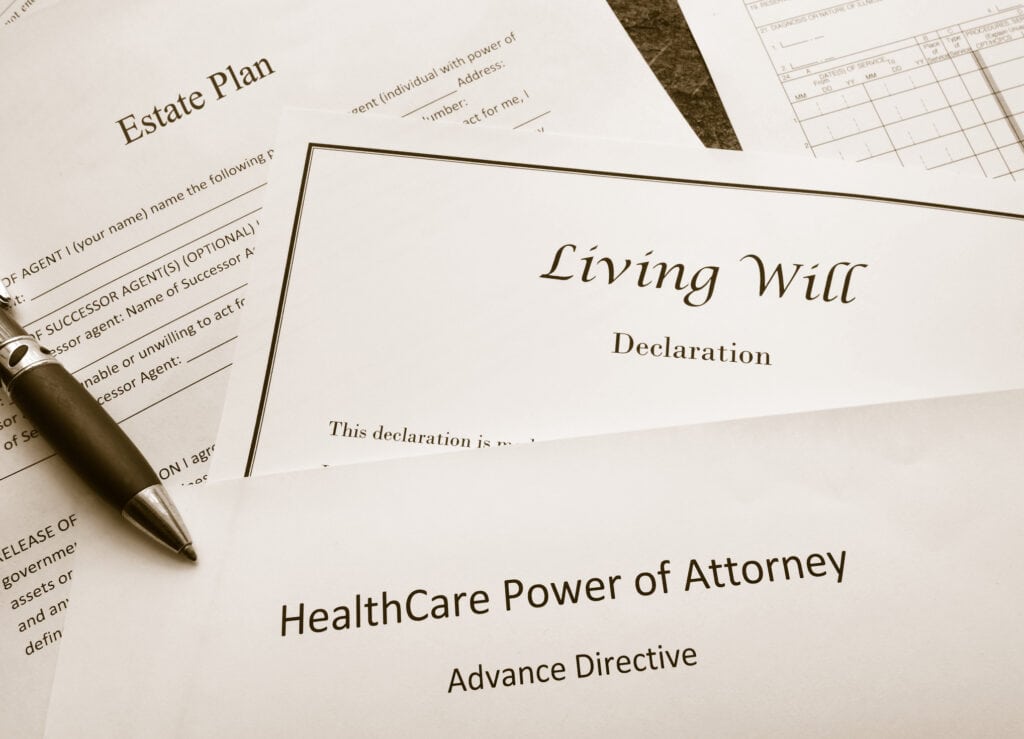The Difference Between a Living Will And Last Will And Testament
Estate planning is an essential process in which individuals make decisions regarding their asset distribution and future health care arrangements. Within the area of estate planning, there are two crucial legal documents to understand: the living will and the last will and testament. By understanding these documents, you will be better equipped to create an estate plan which accurately represents your financial desires after passing away. Below, the trust and estate planning office will explore the intricacies of a living will and a last will and testament and elaborate on the key points of each document as well as their differences.

Understanding a Living Will
A living will refers to a legal document which establishes an individual’s medical preferences in the event that they are incapable of communication or incapacitated. A living will is effective during an individual's lifetime, and is only effective in the event that you are unable to make medical decisions for yourself. This document also includes a healthcare proxy, or someone who will make medical decisions on your behalf aside from those included in your living will if you are unable to do so. A living will specifically focuses on predetermined medical directives in order to guide loved ones and medical personnel during treatment.
Key Points of a Living Will
One of the key aspects of your living will be your preference for certain medical treatments. These medical treatments may include life sustaining treatment, organ donation, resuscitation, pain management or mechanical ventilation. Your living will outlines your desires for how medical professionals will go about your treatment plan. Another essential aspect of a living will is the designation of your healthcare proxy. As stated above, your healthcare proxy will step in to make medical decisions on your behalf that you do not previously specify. Unlike a last will and testament, a living will takes effect when you are incapacitated or you are not in the state to make medical decisions. This includes neurological conditions in which an individual has a functioning brain stem but lacks cognitive function, otherwise known as a vegetative state. It also takes effect in the event of a coma and, in some states, terminal illness.
Understanding Last Will and Testament
A last will and testament is a legal document in which a testator, or the individual writing the will, outlines how they would like their assets to be distributed after their passing. Unlike a living will, a last will is only effective after death. There are multiple important decisions outlined in a last will, including the appointment of an executor, who will ensure your will is carried out and your assets are distributed accordingly. A last will is also how you can designate guardians for any minor children as well as the assets you would like to distribute and the beneficiaries who will inherit them. Asset distribution is one of the key components of a last will and testament. By writing one, you ensure that after your death, your assets are given to people of your choosing.
The Difference Between The Two
Although similar in name, these documents are drastically different, and it is important to understand the unique functions of each before planning your estate. While a living will outlines the healthcare directives and medical preferences in the event that you are incapacitated and unable to make medical decisions for yourself, a last will and testament outlines what you would like to do with your assets after your death. Another key difference between these two documents is when they take effect. A living will takes effect while you are alive and is only effective in the event that you are incapable of making your own medical decisions. A last will and testament is only effective after your death.
Understanding the distinction between a living will and last will and testament is essential to make informed decisions regarding the protection of your assets and loved ones. While a living will addresses your healthcare preferences and ensures that your choices are respected regardless of your condition, a last will and testament protects your assets and allows you to designate beneficiaries for your estate. Learning about the unique functions of these documents will provide you with the opportunity to plan your estate with clarity. Consulting with a knowledgeable estate planning attorney will provide you with peace of mind during this decision-making process. For all your estate planning needs, contact the Trust and Estate Planning Office at (718) 333–2395.






